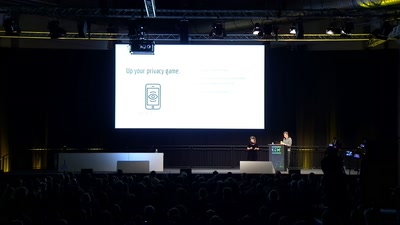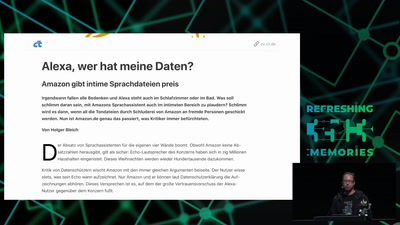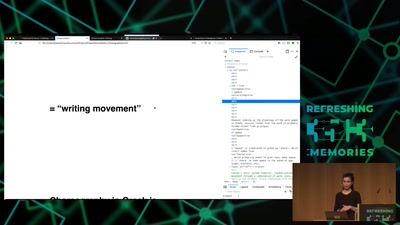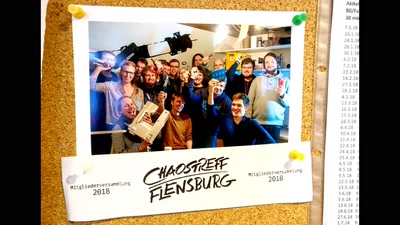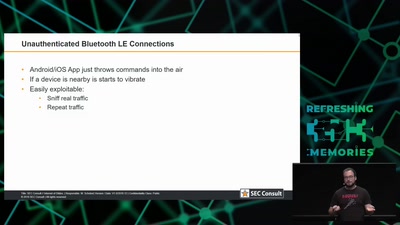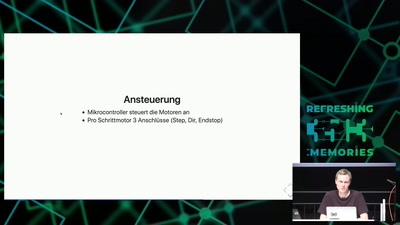There has been a lot of talk about Virtual Reality (VR), but still there are very little applications to enhance our everyday lives outside of entertainment. Augmented Reality (AR), the less known sibling of VR, has the power to have a more profound impact on our lives than VR ever could. Instead of replacing the real world with a virtual one, AR enhances the reality with virtual content. Therefore, AR can be a gateway for people in accessing and understanding todays technology and could provide vast possibilities to support our everyday lives, e.g., for navigation, traveling, or education.
This talk will give an overview on AR in general and explain its possible benefits and use cases, as well as the issues that may arise, e.g., regarding privacy, data security, as well as psychological and sociological challenges. The talk requires no special knowledge and is suited for people with little exposure to AR and mixed reality, but it will also give insights into current relevant research and development.
The recent renaissance and the technical advance brought Virtual Reality (VR) into the spotlight of the mainstream media and led to many promises of a upcoming VR revolution. But despite the abundance of VR headsets, the profund impact into our everyday lives is still not on the horizon. However, hidden in the shadows of VR, Augmented Reality (AR) has a much higher potential to change our lives. In contrast to VR, which aims to replace our physical reality with a virtual one, AR expands our physical world with virtual content. While VR disconnects us from the world, AR bridges the gap between the real and the digital world.
Research in last decades focused mostly on specialized and professional use, e.g., in medicine or the industry. Nonetheless, there are a lot of applications for everyday usage, like navigation, traveling, education, and others. Probably the most important promise of AR is that it can help mend the ever increasing breach between humans and technology. Todays technical systems are often to complex, processes to distributed for humans to fully understand the function and state of systems. With AR we can superimpose these information directly on our physical world, visualizing data flows and connections, and make technology understandable again.
Despite these opportunities to improve our lives, AR also harbors possible dangers for our society. Looking at the development of the smartphone ecosystems, there will very likely be a few closed systems controlled by their respective globally operating manufacturer. The Microsoft HoloLens is an early example of this likely trend with supporting only applications of windows universal platform. This implies the danger that these concerns have a vast control over the devices itself and with AR could literally dictate what we are allowed to see and what not. Privacy is also an important factor. To function in a satisfactory manner, AR headsets need a very good positional tracking and a video feed of what the user is currently seeing. To make sense of these informations, cloud-services will very likely be involved. This means sending what is basically a live feed of a persons live to somewhere in the vast expanse of the web. It's very hard to think of data that is any more sensitive than this. Therefore the challenge is how to make sure the data is handled responsibly and remains in the control of the user. Furthermore, AR can also be used for services, which are not in the best interest of the user, like personalized advertisements that, in a worst case scenario, could be superimposed on any surface. Last but not least, there are also some psychological and sociological challenges in the regard of how AR could influence our understanding of the world and how we interact which each other. This is an important question with our current use of smartphones, it becomes even more important when AR has entered our everyday lives.
All of this makes Augmented Reality one of the most interesting areas of the current technical development. Therefore, it is important to get an understanding of what it is all about, which is exactly the goal of this talk. Besides a short definition and overview of the historical context and the current state-of-the-art, the talk will introduce a possible scenario of how AR can influence our everyday lives, which is based on the raise of the smartphone to the ubiquitous device it is today. We will hopefully close with an interesting question and answer session, where we can discuss some aspects even further.
Download
Video
These files contain multiple languages.
This Talk was translated into multiple languages. The files available for download contain all languages as separate audio-tracks. Most desktop video players allow you to choose between them.
Please look for "audio tracks" in your desktop video player.

